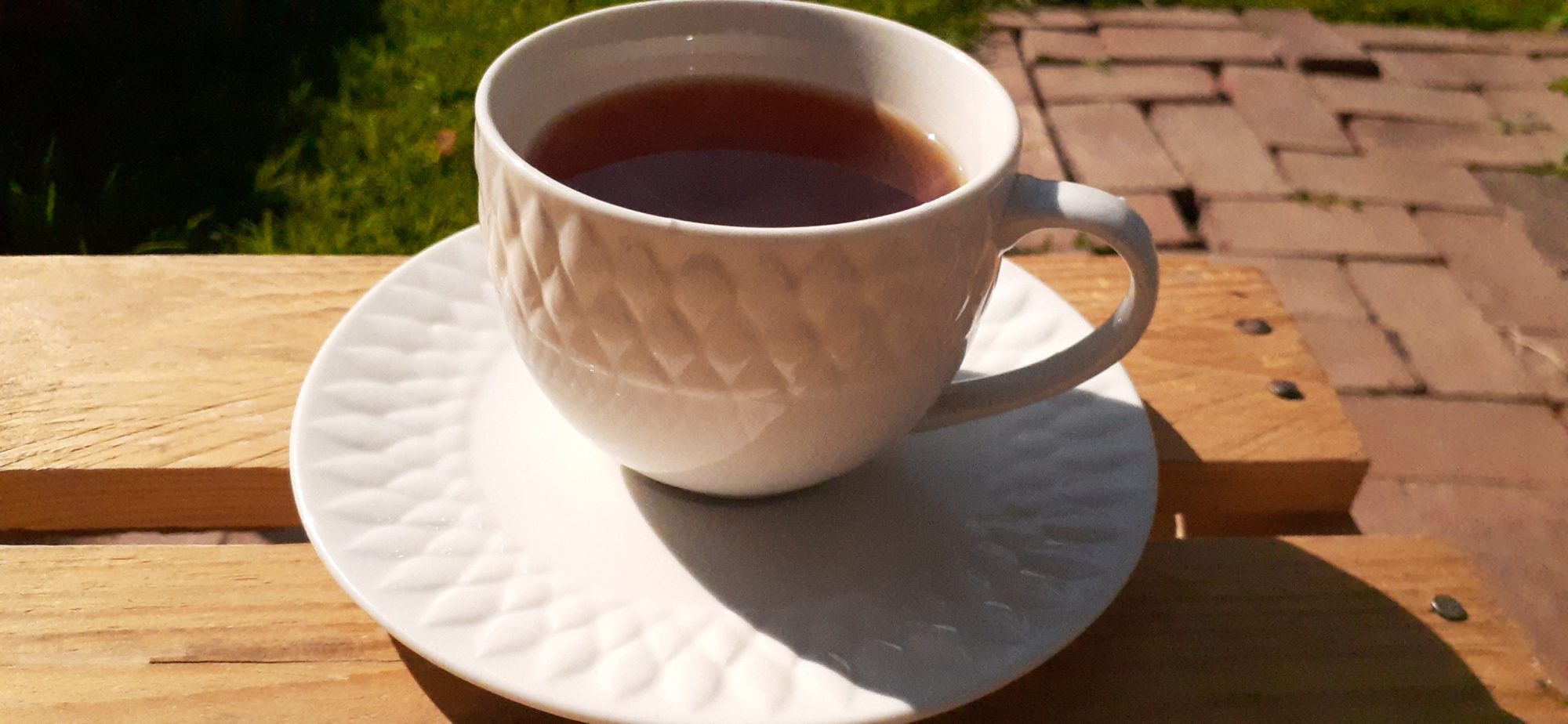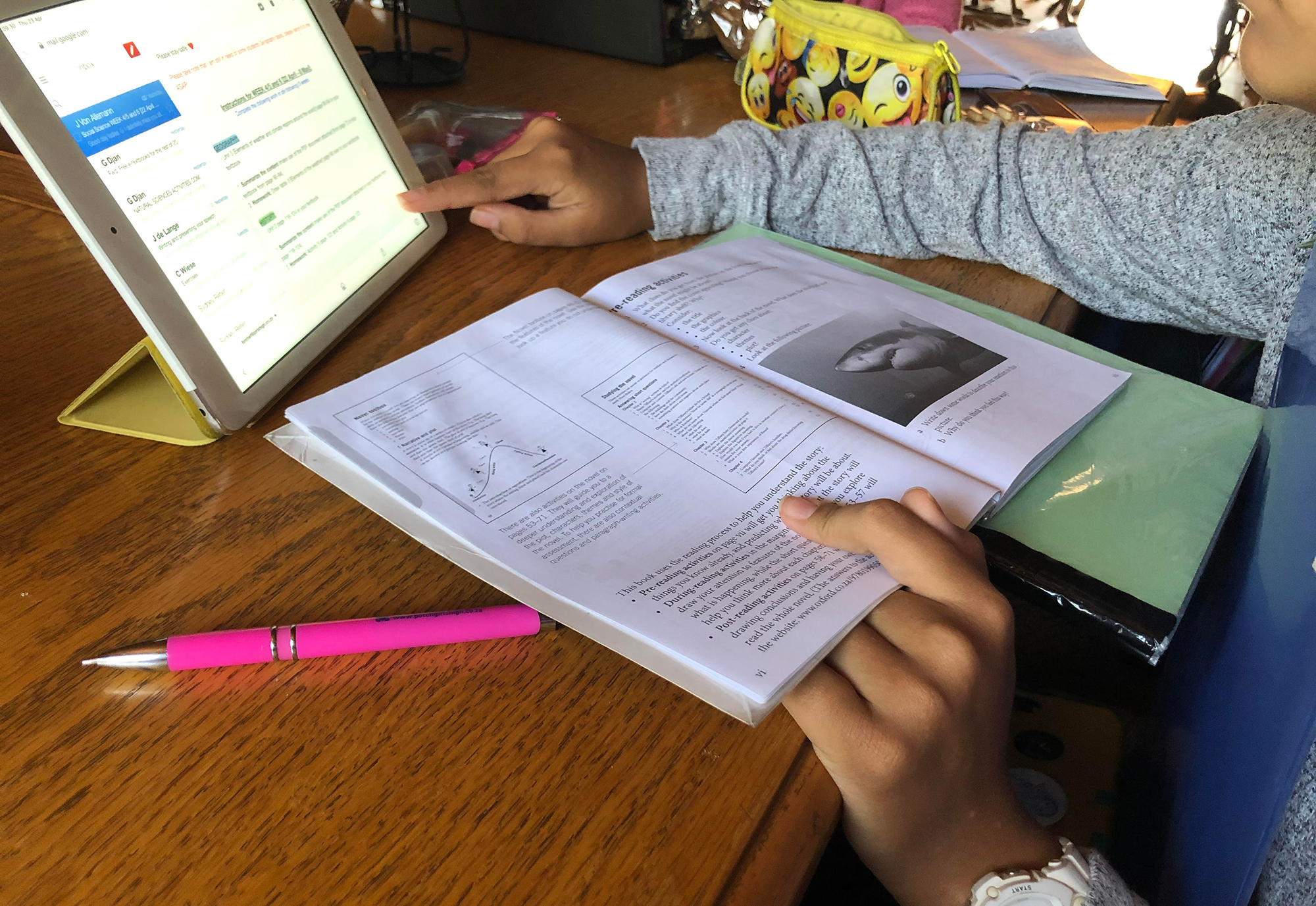LOCKDOWN REFLECTIONS: Day 28
The leaves tell the story of the weeks passing by as military moves in

South Africa went into a 21-day lockdown on Friday, 27 March, in a countrywide bid to block the spread of Covid-19. The lockdown was extended a further two weeks by President Cyril Ramaphosa. These reflections form part of a series by Young Maverick writers who are monitoring the stay-at-home regulations in various neighbourhoods.
See Pre-Lockdown Reflections here; Day 1 here; Day 7; Day 14 and Day 21
A yellow orchid which was once blooming is slowing dying in lockdown
Rondebosch, Cape Town: As we approach the supposed final stretch of the lockdown, it seems the majority are running out of booze and cigarettes. One colleague made a joke that she was cleaning the house with the vain hope of finding a loose cigarette buried somewhere in her couch. Trawling Twitter, some people’s post-lockdown plans include emptying out liquor stores and flooding the clubs. Sadly I don’t think the booze ban will magically lift on 1 May.
My neighbourhood is still relatively quiet. Each day has the same soundtrack: birds chirping in the morning, a few passing cars, dogs barking and children screaming and playing across the street. I realise how “pleasant” my lockdown experience has been compared to millions of others, but I, like many, am ready for this season to end. A yellow orchid in my room which was once blooming with flowers is slowly dying. I’ve taken this as a symbol of this lockdown period. There are two flowers left, to symbolise the week we’re in and the week remaining. I’m hoping that with a bit of love and care it can rebloom. I hear orchids are resilient. – Sandisiwe Shoba
On Thursday, the military – with their big guns – moved in

Chiawelo, Soweto residents queue at the Vuwani Secondary School to register for food parcels. Interestingly, despite the practice of physical distancing being ignored, only two people wore masks and both did not form part of the queue. (Photo: Bheki C. Simelane)
Protea, Soweto: While it has been business as usual in many parts in Soweto, including Protea Glen, Chiawelo and Protea South and North and other areas, an obvious sign that things were about to change in the township was witnessed on Thursday morning. About a dozen police cars circled the areas. Sandwiched between the police cars were army trucks.
As the convoy edged its way further down Chris Hani Road, the imposing images of the army trucks and uniformed soldiers slowly passed, only revealing their heads and barrels of their big guns over the roof of the trucks. A number of community members watched from their gates as the vehicles trundled by.
The visibility of law enforcement on Thursday 23 April 2020 came at a time when many communities are frustrated by the delivery issues related to the promised food parcels and emergency funds. As one man in Protea complained about high taxes and unplanned pregnancies, one woman told him, “Go and tell that to the government.”
Some community members were not happy about the processes followed in the distribution of the food parcels, claiming that those trusted with the work were prioritising their relatives, friends and those they had political ties with. This claim was loudly made by some Protea South residents openly to the team distributing the food.
In Chiawelo hundreds of community members queued at Vuwani Secondary School on the morning of Thursday 23 April 2020 to register for food parcels. Their rumbling stomachs left no patience for physical distancing as for many the only focus was to get to the front of the queue.
Despite physical distancing being ignored, only two people were seen wearing masks and both did not join the queue. – Bheki Simelane
The trees tell a story of time passing as days mesh into one another

The police drive off after stopping briefly on their patrol to speak to a man outside a building in Emmarentia on Thursday, 23 April 2020. (Photo: Sumeya Gasa)
Emmarentia, Gauteng: It’s day 28 of the lockdown and the days have been feeling more alike than before. With each week that has passed since the beginning of the lockdown, I have made mental notes of how the trees have changed. At the beginning of the lockdown, they were more green than yellow. But now some are almost bare.
This morning, again, I heard brooms scraping on the ground as two men swept up the leaves into three neat piles. One of them is a homeless man who finds solace among others like him under the trees. Another is a man who lives in my building but seems to spend more time outside his flat than in.
While my observations of the regular characters in the scenes from my balcony have barely changed each week, there always seems to be a moment of intrigue if I watch long enough.
After the usual passing by of a security car, I notice an unusual amount of activity at the entrance of the building next door to mine. I take note of the white Ford Ranger and two smaller sedans on either side of it. Next, I see a man piling large sacks of an identifiable product onto a trolley before transporting them into the building.
Shortly afterwards, a police vehicle pulls into the street, pauses and then parks next to the Ford Ranger. The two policemen speak to the man for a few minutes before jumping back into their vehicle. And not long after that, the driver of the Ford Ranger drives off in the opposite direction.
After this moment passes I can’t help but revert to my initial thoughts about this particular Thursday of the lockdown. I wonder what the president’s announcement for today will hold. I also wonder how much longer will the men who collect recyclables outside my building have to wait before they can cash in their growing mounds of used goods. And last, what state will the trees be in when we are finally, truly able to go outside freely.
And with the new recommendations set out by the World Health Organisation on when to consider lifting a lockdown, I suspect I will be spending more Thursdays typing on my balcony with a camera waiting to capture the odd moment of intrigue. – Sumeya Gasa
Feeling extremes of highs and lows as lockdown penetrates

Rooibos tea is the preferred drink on most days. (Photo: Ayanda Mthethwa)
Ekurhuleni, Gauteng: I have been sharing with friends and family that the dullness of the “new normal” is becoming unpleasant. The extension of the lockdown has not made it easier.
My days are split between two emotions: excessive highs and sombre lows. And the intensity of the emotions differs each day.
Excessive highs: I feel well adjusted. I am able to focus on the positive aspects, like knowing that the lockdown bought South Africa some time to increase testing capacity for the virus. I wake up with an affirmation in mind (humanity is capable of standing strong through adversity), it helps keep the positive emotions alive. On these days, tea is the preferred drink. And when I can, incense burns while I sip on my tea. Exercise is also a great tranquiliser. I am focused, and I move through my daily routine with ease. The interviews I have with sources for stories are exciting. On such days, my mind is often teeming with fresh ideas. And the new normal is not as suffocating.
Then come the sombre lows: As a journalist, I often find that I cannot avoid reading, watching or listening to the news. Even on days when I feel like my unhappiness is borne of the distasteful news I either read about or report on. It’s the stories about the evictions, social distress caused by the lockdown, schools being vandalised, corruption in food relief programmes, and many others that eat away at me. It’s knowing that, although some leaders in our government are working tirelessly to ensure that lives and livelihoods are saved now and after this pandemic, life as we know it will never be the same. It’s the helplessness of not knowing how to comfort a friend who has lost a job as a result of this lockdown. Not being able to offer them any hope, and the lingering fear that I might be next.
An Alexander Pope poem I read (and dismally failed to interpret) during my varsity years has been playing over and over again in my head recently. Especially the line: Hope springs eternal in the human breast: Man never is, but always to be blest.
Maybe things will get better. – Ayanda Mthethwa
It’s a struggle, but we can make it

On days when it is most difficult to cope with the uncertainty and monotony induced by Covid-19, music is my go-to escape. It stimulates my levels of productivity. (Photo: Yanga Sibembe)
Johannesburg South, Gauteng: Well, 28 days into the lockdown and I’m starting to feel the effects of the monotony. Wake up, work, eat, and sleep. Exercise occasionally.
However, of course I’m still privileged enough to be able to do these things. Others in the country are not so fortunate as to just be worried about monotony. In spite of that, I’m still struggling to be productive. I’m pretty sure learning how to be productive despite the situation one is faced with comes with experience.
And being just about two years in the proverbial shark tank of journalism, I’m prone to slumps. But I soldier on. I still have a duty to do my job, to provide information to the masses. So that’s what I do. On days when the slumps hit me the hardest, when I hit dead ends because a spokesperson in a government department is refusing to provide me with the information required to do my job, I depend heavily on music to stimulate my mind. Through music, I’m able to think outside the box, to get creative and find ways to acquire the information I require.
When I have said information, the music still plays a huge part in my crafting of the article. Of course, I’m not entirely dependent on music to write, because there are instances or events where it’s just impossible to write to music. Music just soothes the process, like oil on gear levers.
A song that I’ve been playing on repeat throughout the lockdown is one by South African house duo, The Rhythm Sessions. The song is simply titled: “We Can Make It.” And, indeed, we can make it, we have to make it. Aluta continua. – Yanga Sibembe
Hear Yanga’s music-to-write-by:
Watching a 14-year-old struggle with the demands of online schooling

Chanel Retief’s sister doing her assigned school work during day 28 of the national lockdown. (Photo: Chanel Retief)
West Rand, Gauteng: The one thing I have forgotten about during this time of the lockdown is that my sister has just started high school. More so, she started high school as well as boarding school in Potchefstroom, North West.
She found the adjustment period more difficult than when she started in January but I sense that she was relieved when Mr President announced the nationwide lockdown that began 28 days ago.
She knew she wouldn’t have to worry about trying to adjust to hostel life, like waking up at 5.30 in the morning and having breakfast by 6am. Or dealing with roommates who think they are better Harry Potter fans than herself and her sister. Or going through the pressure of trying to balance extracurricular activities and academics.
And the one that I think that is most important to her is dealing with “matron’s food” which I think she exaggerates because I went to the same school and the food was not that bad. But now she obviously is on edge, the more days go by with this lockdown, because as much as she likes being home, she is struggling to understand what this will mean for her future. To add to the stress, my sister has found it difficult to cope with the amount of online homework that she is still not sure counts for anything. My parents, who try not to worry her on the matter, anxiously read updates from the school, refresh news websites and come to me for answers. For now, to keep her mind at ease, my family and I have encouraged her to continue to work hard but not exhaust herself. She is disciplined in knowing that this is not a holiday (even though she only wakes up at 10am) but she has more discipline in taking breaks like going outside to play with the dogs or watch a little TV just to, as she says, “keep myself sane”.
I have been in this lockdown for 28 days, and still don’t have the same discipline as my 14-year-old sister. – Chanel Retief DM



















 Become an Insider
Become an Insider